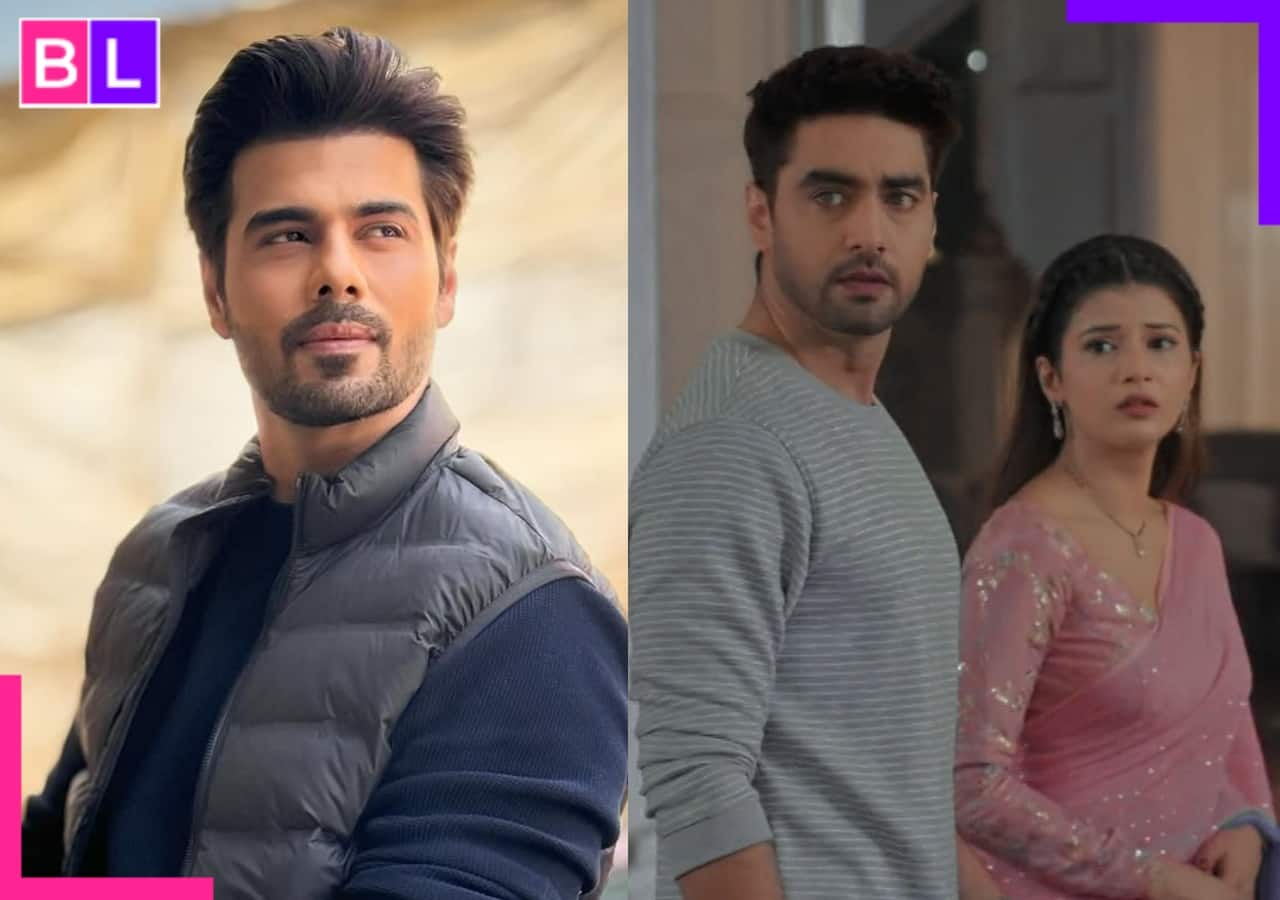When we speak over video chat for this interview, they are sitting in a white-walled hotel room looking very chummy. Leung, 61, is sporting an autumn-brown jumper and check trousers, his hair slick. Lau, 62, is wearing a diamond-pattern blue sweater, the sort you might find on a golf course.
They seem best buddies, although Leung adds a caveat to that.
“We don’t really get together much outside of work,” he says. “A lot of the rapport that we have on the screen was built while we were working together.”
Clearly, each actor holds a huge respect for the other.
“I admire Andy’s professionalism. He’s very serious,” Leung says.
Lau nods in appreciation. “Tony is also very serious and professional but also very easy-going.”
Are there roles played by the other that each admires?
“I really like Andy in Infernal Affairs,” Leung says.
6-year wait over, what to expect from Wong Kar-wai’s Blossoms Shanghai
6-year wait over, what to expect from Wong Kar-wai’s Blossoms Shanghai
When he was first approached for The Goldfinger, Leung said he felt “peace of mind” knowing he’d be working with Lau again. But why has it taken so long for them to reunite?
“Of course, we were waiting for the right script, but as actors we’re passive,” suggests Lau. “We have to wait for the right script, the right director and the right opportunity to put us together.
“So as much as we wanted to work together over the years, we were just waiting for that combination to come in.”
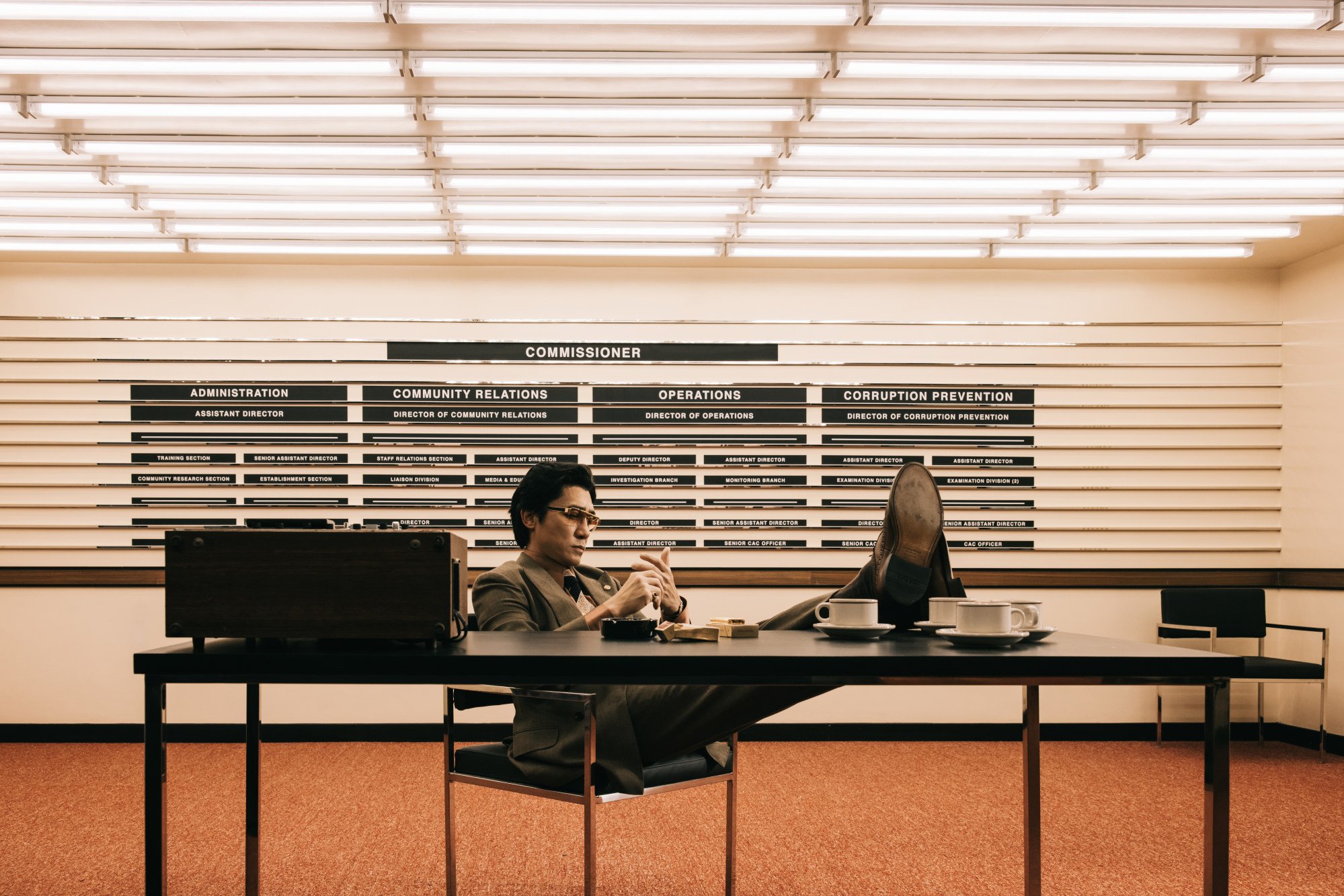
Thankfully, the wait has been worth it.
In The Goldfinger, set largely in the 1980s, they star on opposite sides of the law. Leung plays Ching Yat-yin, or Henry Ching, a corrupt tycoon in charge of a multibillion empire – the Carmen Century Group – which goes belly-up, leaving stockholders’ lives in ruins.
Lau plays Lau Kai-yuen, a senior investigator at the Independent Commission Against Corruption (ICAC). Theirs becomes a battle of wills as Lau vows to bring down Ching.
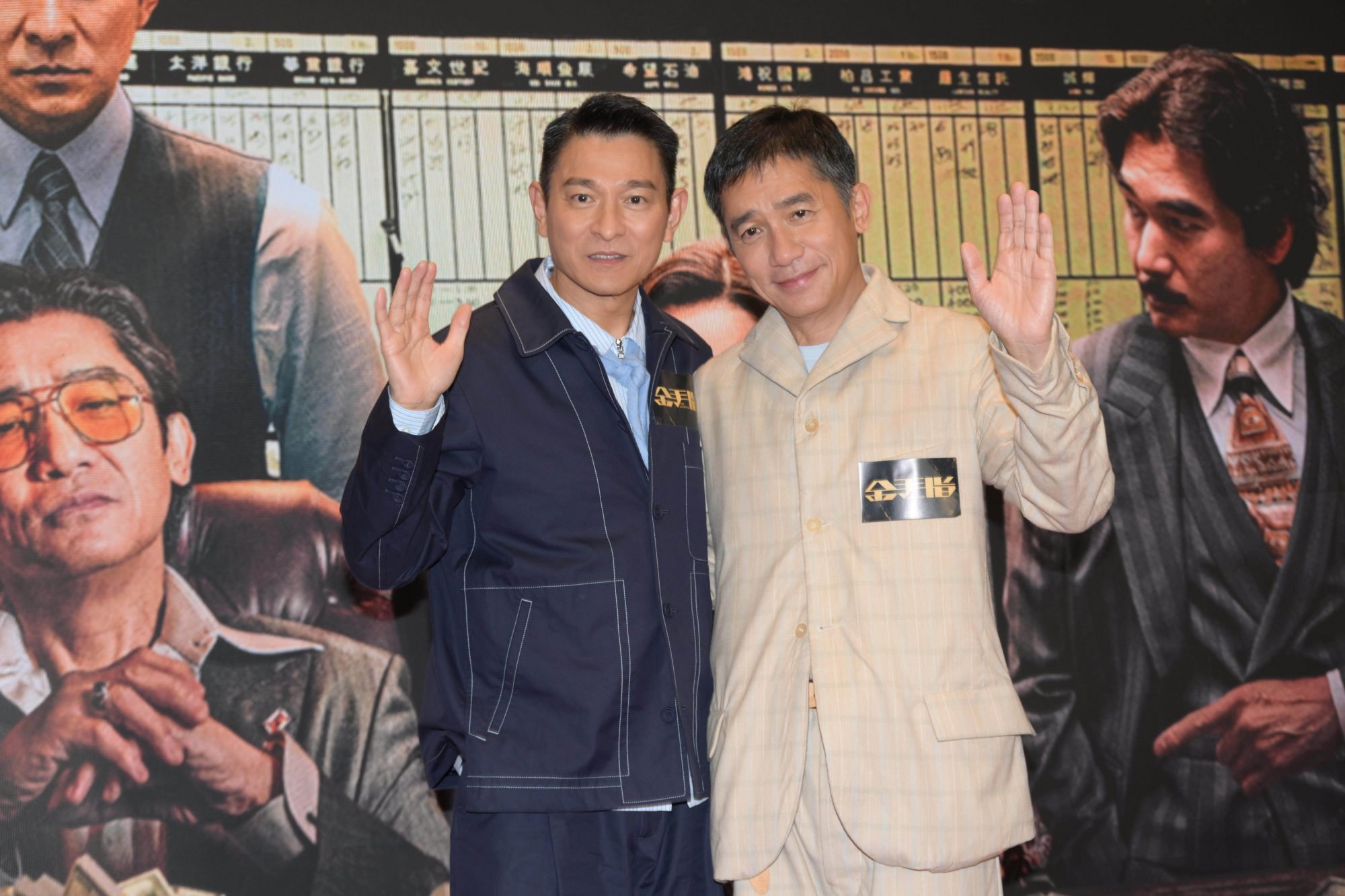
Spanning more than a decade, The Goldfinger is inspired by true events, with a complex and often exuberant story of financial chicanery – something Leung believes will draw in audiences far beyond Hong Kong.
“I think the theme of financial crimes is very attractive,” he says. “It happens in any country. So I think it will interest audiences around the world.”
For Leung, the prospect of playing Ching was an exciting one.
“I don’t know why, people used to ask me to play a good guy, but this time finally I have a chance to play something the other way around,” he says.
“I think it’s very challenging to me to play the bad guy. This time Andy is playing the good guy. So 20 years after Infernal Affairs [when Lau played a crook going undercover in the police force and Leung was a cop masquerading as a triad member] we change our position with one another.”
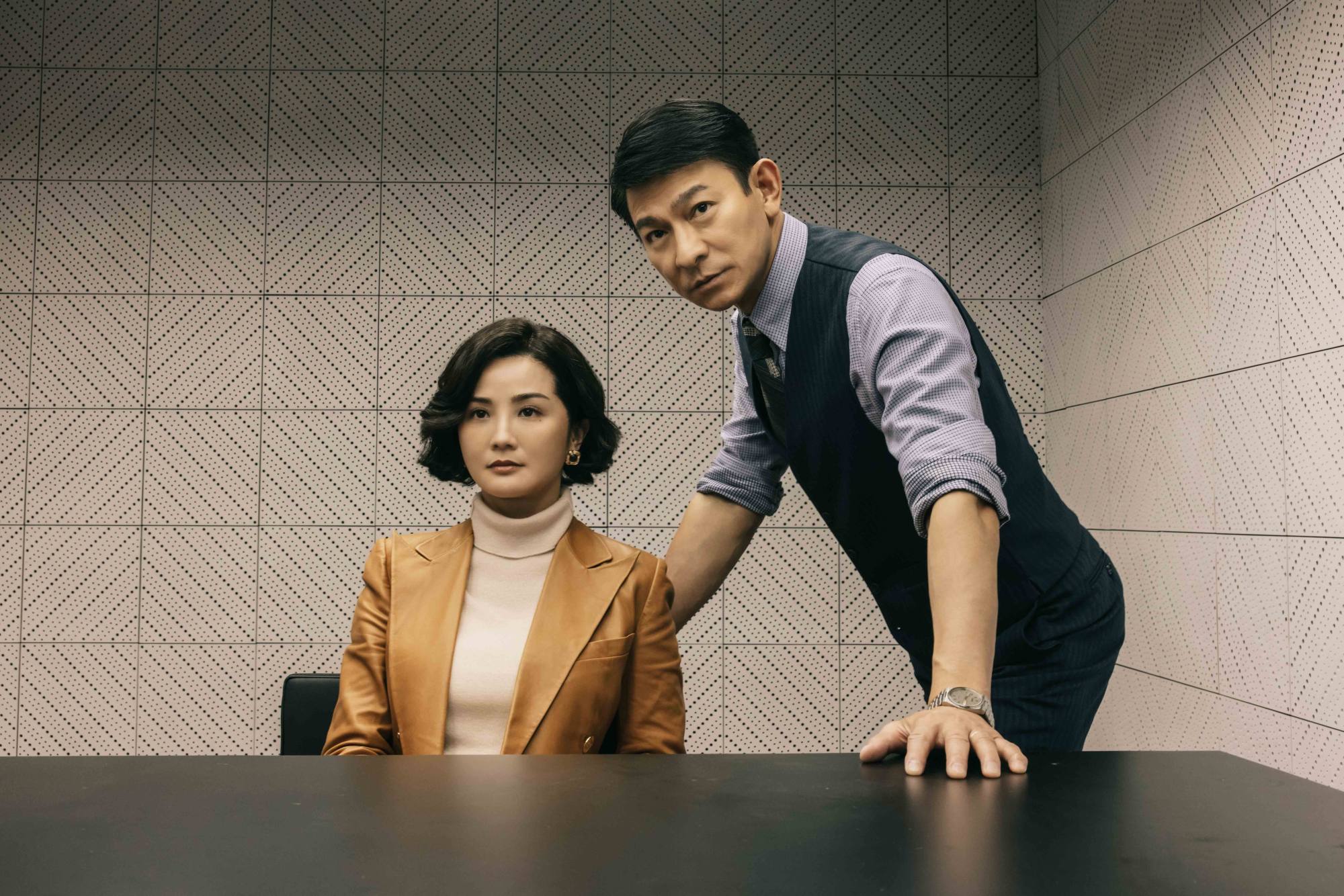
In The Goldfinger, Lau’s character is the dogged law enforcer.
“My character represents justice, and having this flamboyant villain creates the existence of my character,” he says. “So his existence also is very important for my character.”
Meanwhile, just watching Leung – so often the buttoned-down, ice-cool character – play someone so brash is a real thrill. He is even seen at different ages with three different looks, using wigs, glasses and traditional make-up rather than the digital de-ageing techniques that have become popular of late.
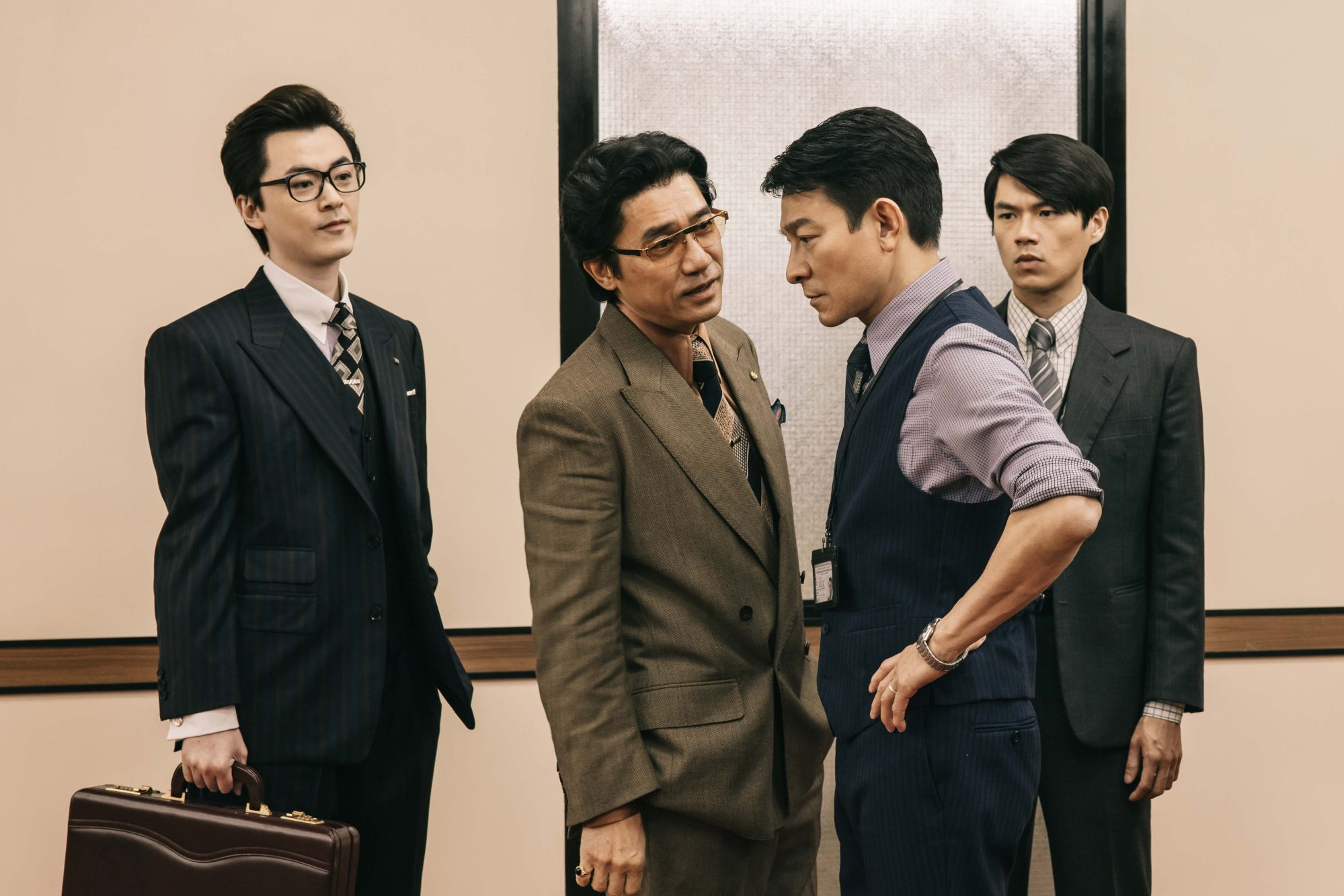
Director Felix Chong Man-keung, who co-wrote all three films in the Infernal Affairs trilogy, has seriously amped up the film’s high-octane style, seemingly to match Leung’s flamboyant performance.
It’s certainly easy to think of Scorsese’s paean to Wall Street excess and the insane world of broker Jordan Belfort when watching The Goldfinger, not least in one scene where yellow-dress-wearing dancing girls burst into a boardroom spraying confetti everywhere to perform a bizarre, but somehow apt, Busby Berkeley-style number.
With a crazy battle scene too, featuring tanks and helicopters, it’s easy to see where the film’s HK$350 million (US$45 million) budget, a record for a Hong Kong production, has gone. The film is unquestionably one of the most ambitious from Hong Kong to grace screens in a long while.
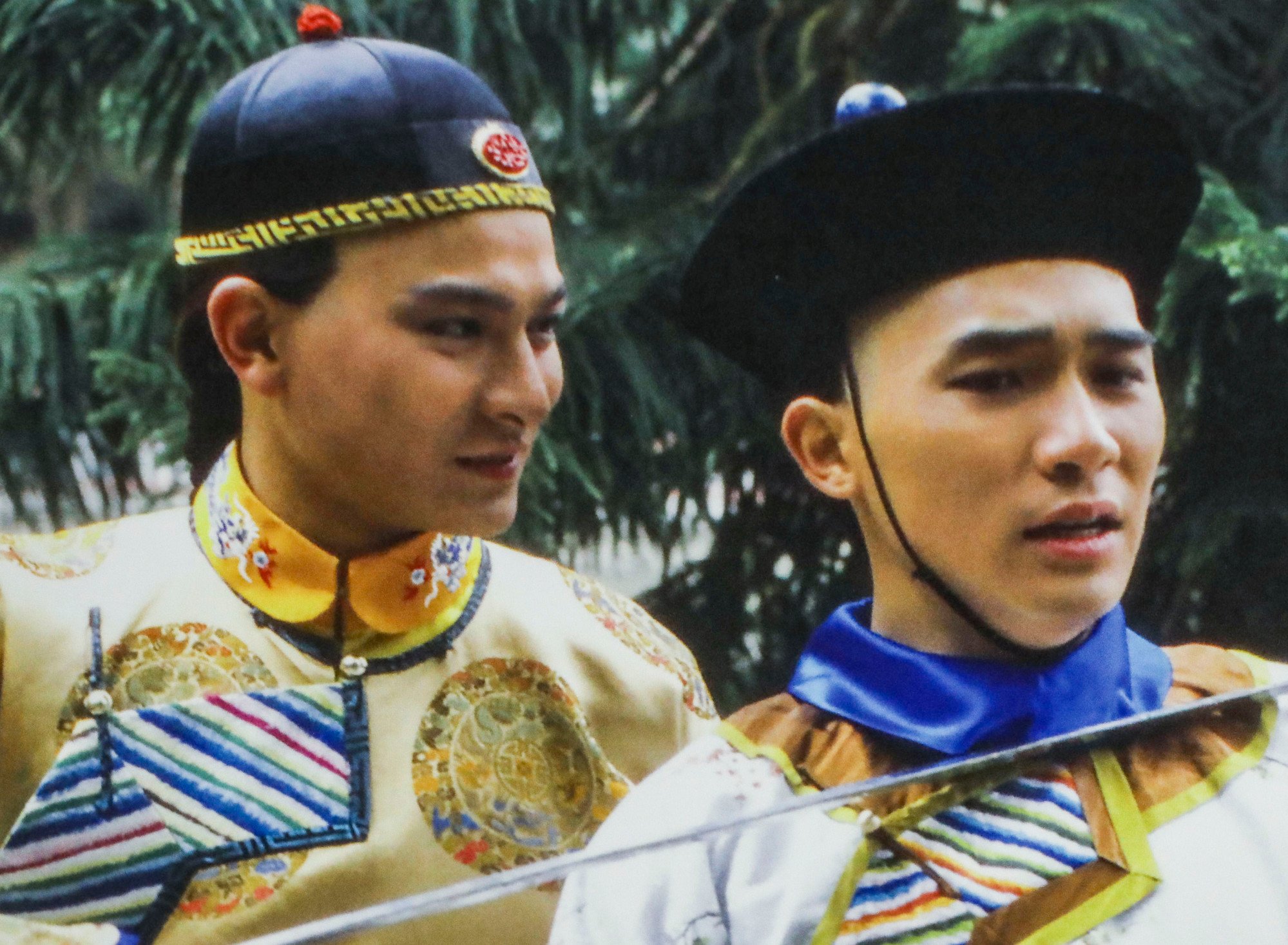
So how do Leung and Lau see the home-grown film industry that they’ve dominated ever since co-starring together in the 1984 TV drama The Duke of Mount Deer?
“I think that Hong Kong films need a bigger market,” Leung says. “Hopefully with the rise of streaming platforms, that will help bring more money into the industry and [allow us to] make bigger films.”
Lau adds: “I think that we could talk about more diverse topics, be more internationalised or globalised. And integrate more interesting styles. For example in The Goldfinger, we use a lot of anime techniques. I think that could help liven up Hong Kong films.”
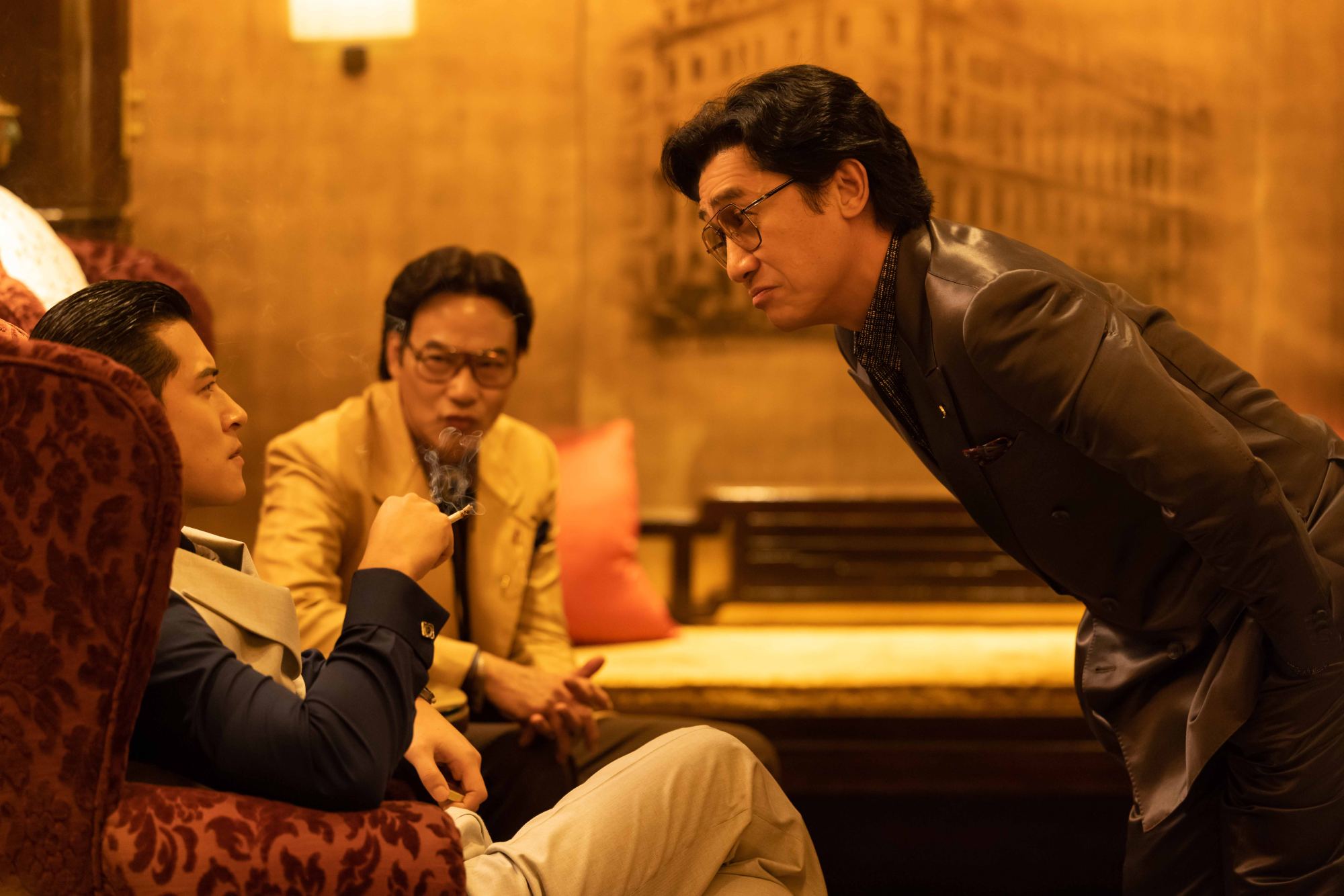
Leung adds: “In the past 20 years, in Hong Kong, there have been more local stories that strike a chord or resonate with local audiences. So that’s been the big change. There have been more of those films about social and local issues.”
Who could play their parts then? “Just like The Departed, it’d be great if Leo DiCaprio will play my character,” Leung offers with a smile.
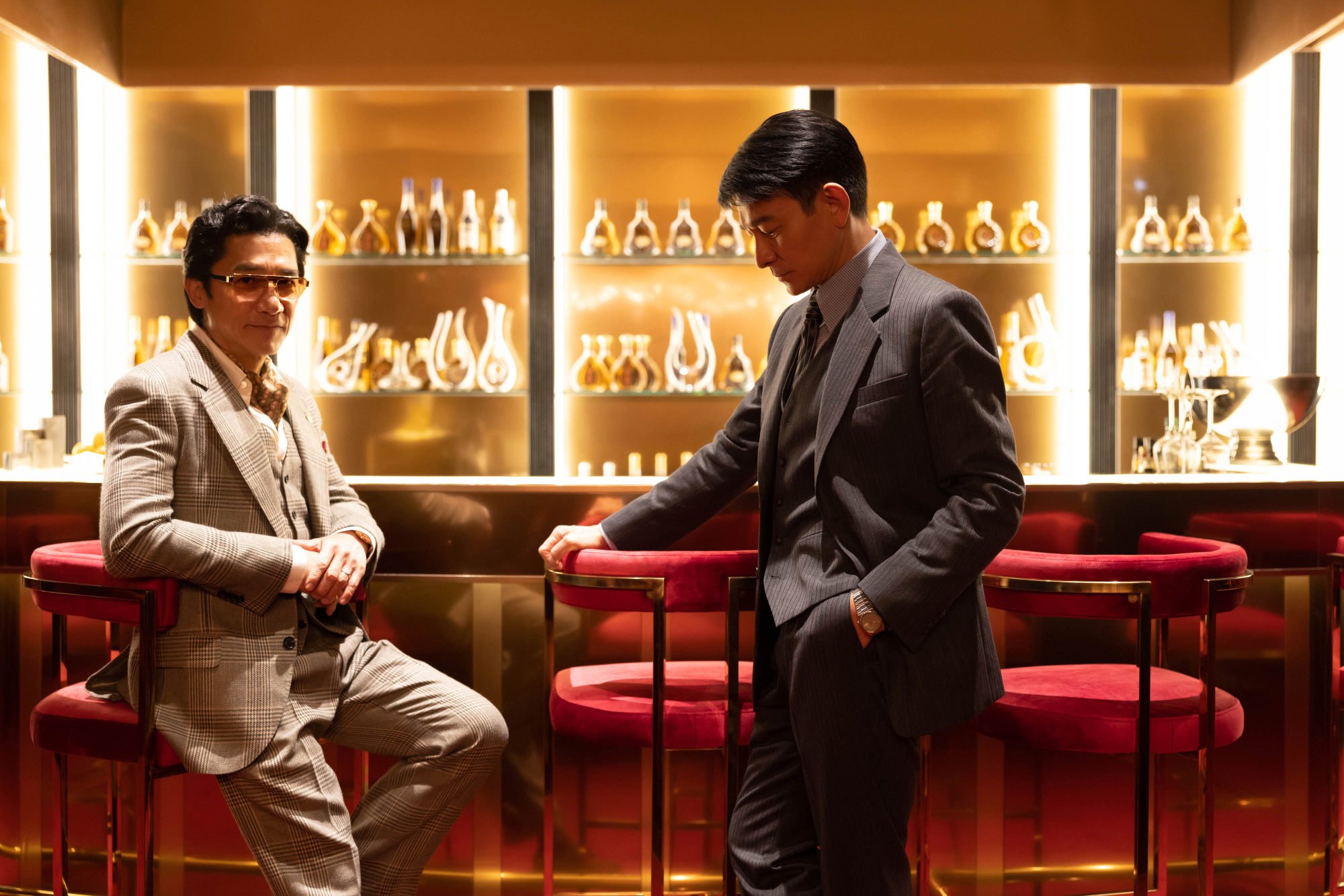
Then Lau’s face lights up. “Is it still possible to get Daniel Day-Lewis?” Sadly, he has retired. But a DiCaprio and Day-Lewis reunion, almost 22 years after another Scorsese classic, Gangs of New York? Now that’s an idea to toy with.

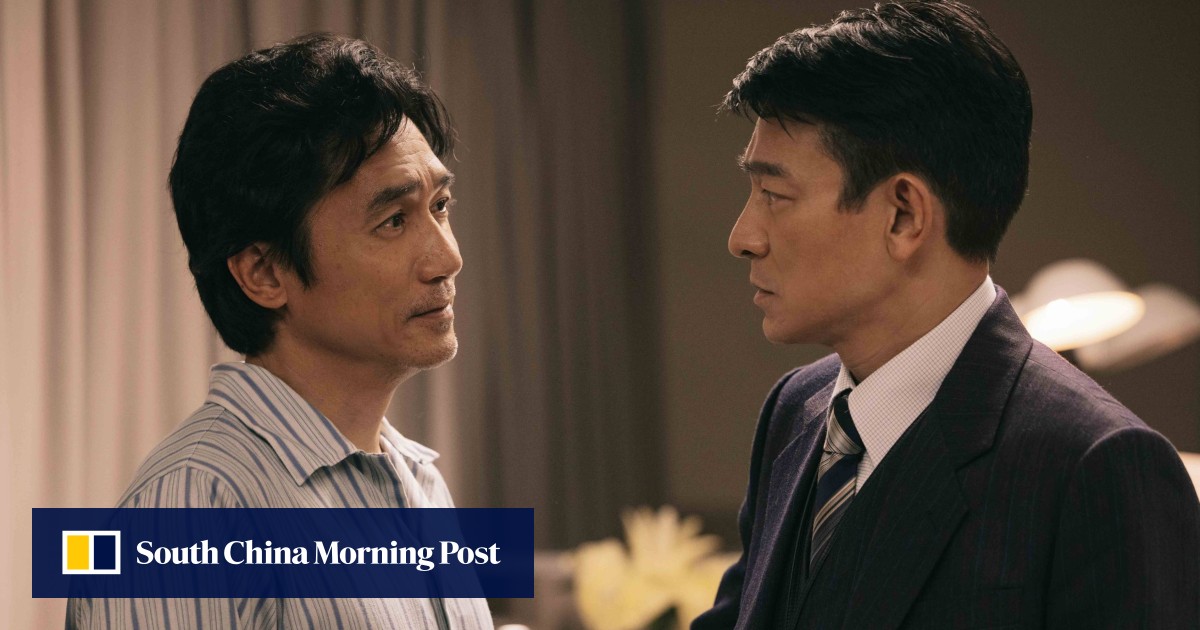
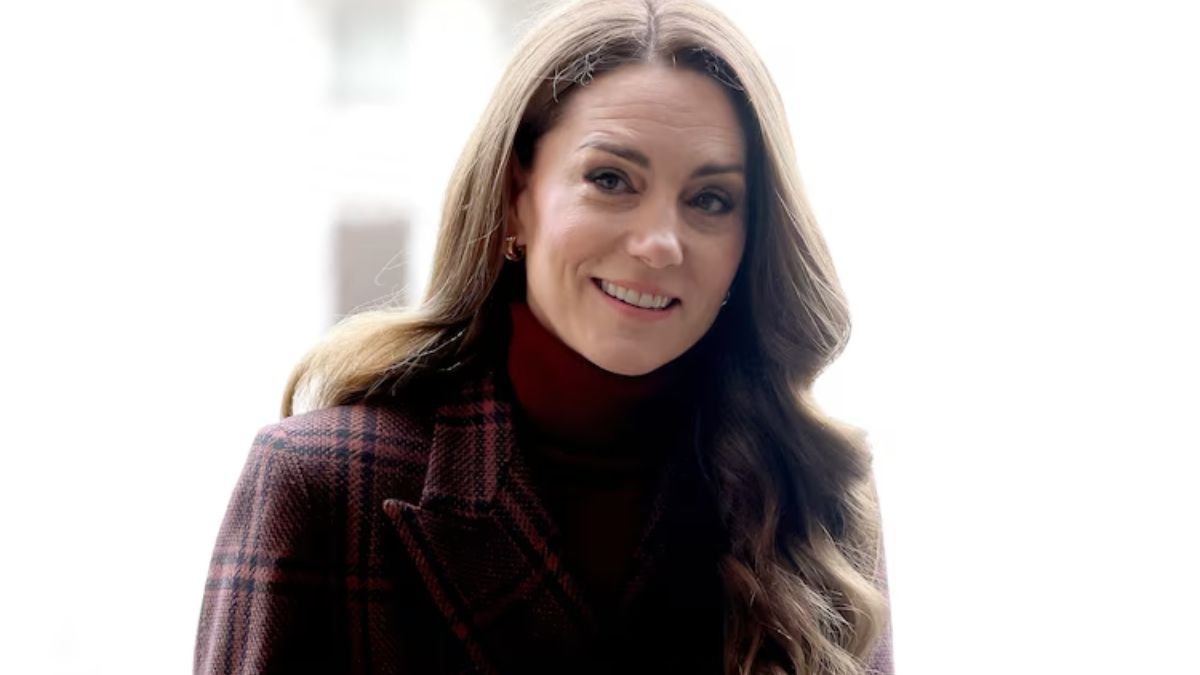)


